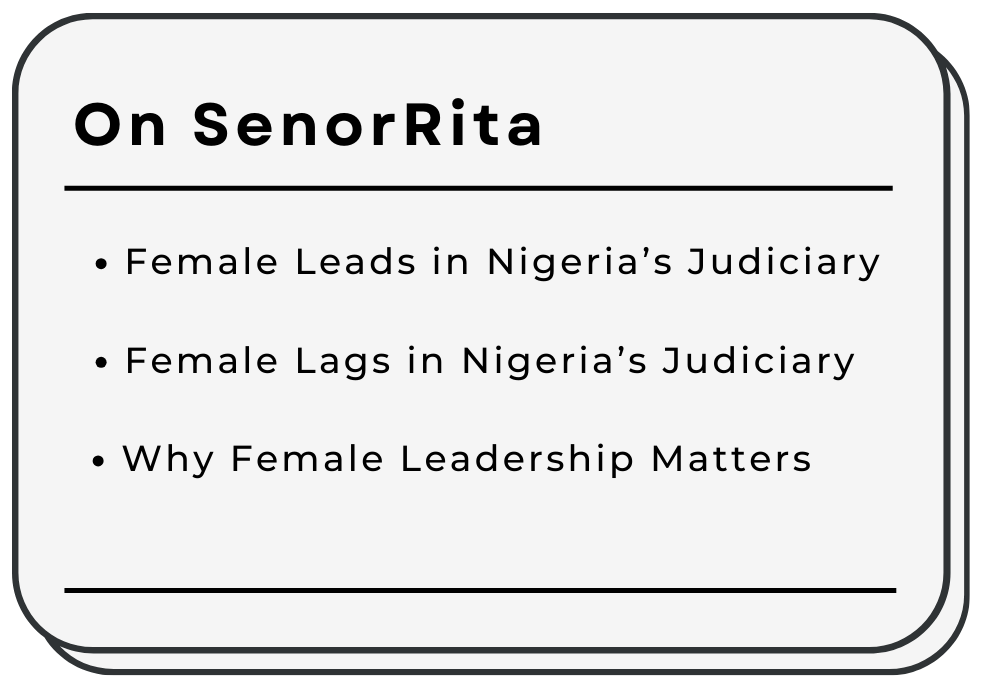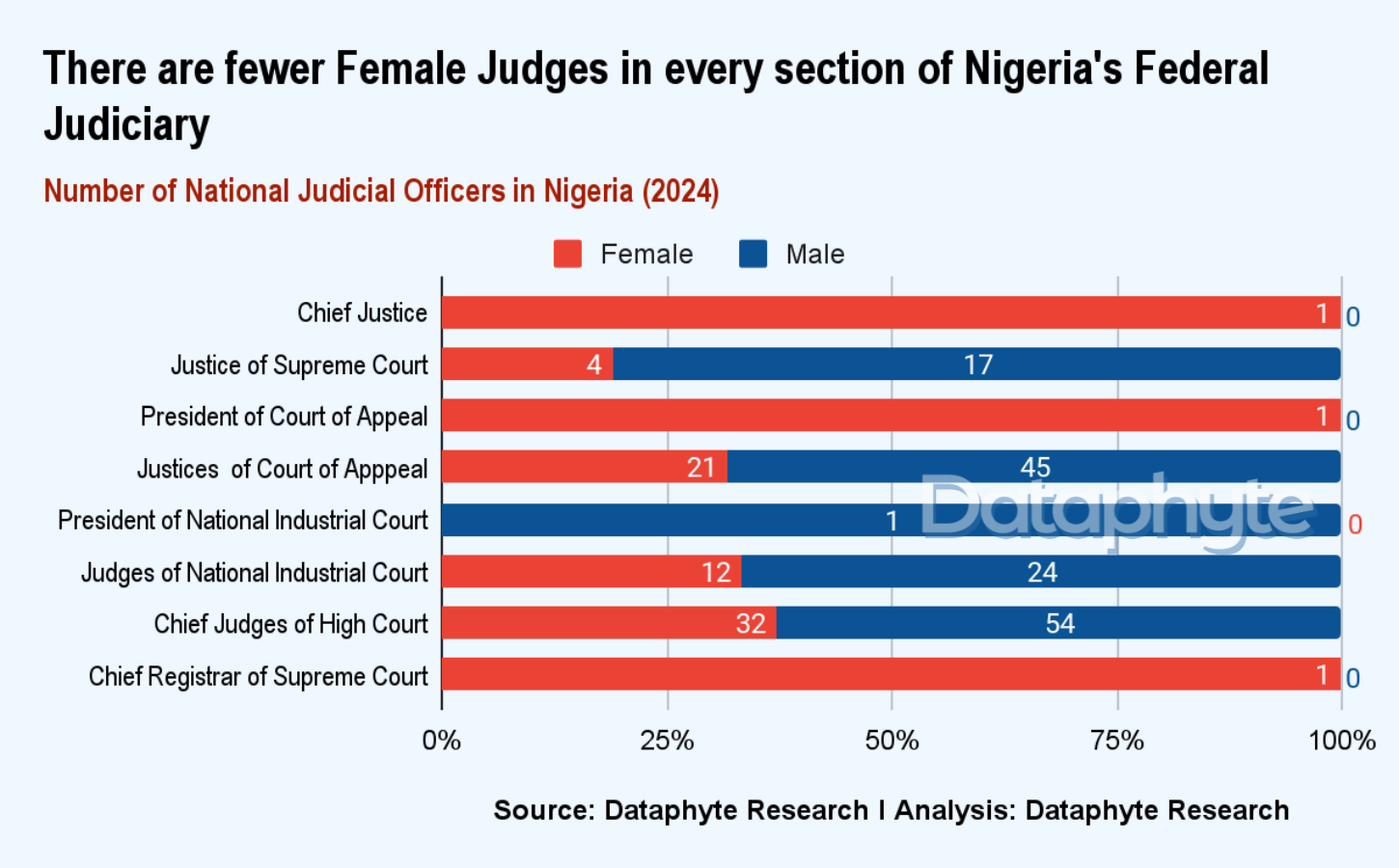Female Leads in Nigeria’s Judiciary
A Justice of the Supreme Court of Nigeria, Justice Kudirat Olatokunbo Kekere-Ekun, has emerged as the Chief Justice of the Federation (CJN).
President Bola Ahmed Tinubu administered her oath of office as an acting CJN and the 23rd Chief Justice of Nigeria.
Justice Kudirat Kekere-Ekun is the 2nd female to attain that position after Chief Justice of Nigeria after Hon. Justice Mariam Aloma-Mukthar (2012-2014).
Data shows female judges are now attaining top positions in the judiciary unlike in the past.
Between 2014 and 2024, no female emerged in the CJN position until the appointment of Justice Kudirat Kekere-Ekun.
Also, a female justice, Hon. Justice Monica Bolna'an Dongban-Mensem is currently the Nigeria Court of Appeal President, while Hon. Justice Benedict Kanyip, a male, heads the National Industrial Court.
The career antecedents of the few women who occupy these top positions show they are seasoned lawyers who earned their appointments through competence and extensive experience.
Female Lags in Nigeria’s Judiciary
The Supreme Court is presided over by the chief justice and has up to 15 Justices. It is the final court of appeal, with jurisdiction over disputes between the states, or between the federal government and any state.
A president heads the Federal Court of Appeal and has at least 35 justices, with a minimum of three with expertise in Sharia Law, and three in Customary Law. There is the Federal High Court and a high court in each of the 36 states.
However, there is less representation of women in other judicial positions. For instance, there are fewer female justices in the Supreme Court, Court of Appeal, National Industrial Court, and among High Court Judges.
There are more males in all these categories compared to females.
Why Female Leadership Matters
Findings show women in the justice system can act as agents of change. Diversity and inclusion enrich all institutions and contribute to greater accountability. Women judges also bring different perspectives and experiences, strengthening judicial systems.
The United Nations noted that women in leadership roles help disrupt networks of collusion, striking a blow against corruption.
However, greater efforts are needed to support women to access justice and ensure that criminal justice institutions fully respond to their needs. By investing in women’s advancement and women's justice leaders, we can help ensure that justice is better served and that women and all members of our society are met with fairness and equality before the law, for the benefit of all.
The Chief Justice of Malaysia, Tengku Maimun Tuan Mat, recommended ways towards ensuring gender inclusion in the judicial system.
‘In promoting access to justice for women, I have ensured that judges continuously undergo training programs and workshops relating to issues affecting gender.
‘‘Under my supervision, we proposed to work with the International Court of Justice (ICJ) to expand the mindset of judges in an effort to promote gender neutrality whilst eradicating gender stereotyping within the courtroom,’ she said.’
Thanks for reading this edition of SenorRita. It was written by Kafilat Taiwo and edited by Oluseyi Olufemi.





